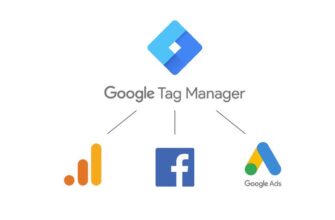The most important stage of launching an e-commerce site – choosing a CMS platform for creating an online store. A lot depends on the choice: how much money will have to spend on the site, and how modern the store will be, whether it will be relevant in five years, whether it will be relevant in five years, whether it will be relevant in five years. whether it will be relevant in five years. Different companies offer their solutions — box and cloud platforms, paid and free… Let's try to figure it out, which online store script will be the most profitable. In this list we have collected 10 popular and, in our opinion, the most balanced CMS for an online store. We compare them according to the same criteria and hope, that we will help you with the choice.
By what criteria was the engine of the online store evaluated?
We highlighted 3 general criteria, which should be paid attention to when choosing a CMS for an online store:
- Price/functionality ratio. Importantly, so that the price of the platform corresponds to its functionality. And if the engine is free, then we take into account the costs of additional modules and refinements.
- Ease of work. Sometimes the most functional platforms are the most complex. There should also be a balance here. A large number of functions will not give anything, if they are difficult to understand.
- Possibilities of finishing for yourself. The platform for launching an online store must be customized, otherwise, you won't be able to adapt it to your business and expand it in the future.
The best CMS platforms for creating Ukrainian online stores
CMS Shopify
CMS Shopify is a professional script that is used by more than 325 000 stores around the world. WITH 2004 year, the engine was developed for the foreign segment, and then adapted to our market. For creating an online store on Shopify not minor programming skills. Currently, the CMS is integrated with all necessary business services.
Customers love Shopify for its extensive features and excellent technical support. It is also worth noting the low cost, the most popular tariff plan is $ 29 / month is a 14-day free trial. the most popular tariff plan is $ 29 / month is a 14-day free trial, the most popular tariff plan is $ 29 / month is a 14-day free trial, which are required for each store:
- Import of goods. In addition to an unlimited base of products, the designer makes it possible to download the catalog from the price list to Excel. The import of simple and variable goods is supported. Most often, it will not be possible to do without the help of programmers. Standard prices for imports are not suitable, you need to adapt the information to the Shopify format.
- Collection. You can create product lines and offer them to customers. This approach increases conversion and the average check. Customers don't mind buying a case together with the camera, memory card and other accessories.
- Certificates. With Shopify, you can sell as physical products, and virtual maps. The module opens during the test period, it is not necessary to top up the account to familiarize yourself with the interface of adding certificates.
- Monitoring of residues. Tracking the number of products on the balance sheet is the "headache" of all managers. If you automate this task, the amount of routine work will be drastically reduced. You can specify the number of products in the service, and the system will monitor the relevance of the catalog.
- Customer base. It is not necessary to connect CRM to create a customer catalog. Shopify will automatically create a customer card after a purchase. You can also add a user manually through the administration panel. In addition to the name and address, there is a field for the phone number, tax benefits and notes.
- Built-in analytics. In addition to the standard attendance widgets, revenue and transactions, there is a powerful generator of non-standard reports and a live viewing mode. It is not possible to track customers in real time on all platforms.
- Marketing tools. In addition to email newsletters, integration with Facebook is implemented, Google Shopping, Snapchat Ads and other platforms. In the settings tab there are courses for each instrument.
- Program library. The marketplace helps to expand standard capabilities. The service team selects important programs and highlights them in a separate "Editor's Choice" tab. There are categories, search and collections for various tasks. From email tools to booking module.
- Linking domains. It is not necessary to use a standard address for the store. You can pay for a domain in the Shopify control panel or link an already purchased one. The service automatically checks the domain name and, if it is not registered, offers to deposit money.
- Flexible messages. Customers receive notifications about purchases, order status changes and successful delivery. The manager receives notifications about new orders by e-mail. You can enable push notifications and quickly process orders.
Users note the simplicity of the admin panel and the generally logical organization of menus and settings.
Shopify is open source. This means, that you will be able to adapt the CMS to your business processes as much as possible: develop special functions, add new integrations, redo the design, and whatever. CS-Cart developers note the cleanliness of the code, therefore CS-Cart is easier to develop, therefore faster and cheaper.
1C-Bitrix
1S-Bitrix has long held high positions in the ratings of the most popular platforms for online stores. Due to popularity, problems with finding a developer for finalization will not be difficult.
1S-Beatrix – it is the most powerful universal combine for building not only online stores, and other types of business sites. This is his big plus and minus at the same time: will appear, that you will simply overpay for unnecessary features. Editorial price for small business – 13 000 USD., for medium-sized businesses – 26 000 USD.. From bonuses – native integration with 1C: Enterprise and embedded CRM.
In general, the basic management of an online store on 1C-Bitrix does not cause difficulties. It does not require special training or deep technical knowledge. But with the installation, setting up and maintaining the site will be difficult for a simple user - these tasks require a team of programmers.
known, that 1C-Bitrix – a flexible system for an online store . You can integrate the CMS of the online store with third-party business applications, improve functionality and design. Of course, for this you need to hire programmers. There should be no difficulties with this: 1S-Bitrix is a well-known platform.
Magento
Magento was first released in 2008 year. IN 2015 The company was bought by the eCommerce giant eBay Inc. IN 2018 passed under Adobe's wing in 2008. Magento is one of the most popular CMS for an online store in the English-speaking world. The platform is known for its flexibility and rich functionality. Magento – the second most popular online store script in the world (in first place WordPress with Woocommerce plugin). It was built over 100 000 online stores, the community has more than 375 000 participants.
CMS has several revisions, including free. Users love the platform for its rich out-of-the-box functionality and flexible customization. Editing for small and medium-sized businesses costs from $15 to $125 month , and for large companies from $15 000 for a year . It is also necessary to take into account the cost of improvements and integrations with Ukrainian services.
Magento is easy to learn, it does not require special skills or training. But users note, that in many settings it is easy to get confused, and the admin panel is illogical in places. Also, developers who are familiar with the Magento architecture are needed for platform customization and support.
An open source online store platform , very popular, and it is not difficult to find a developer in the English-speaking world. However, there are very few competent Magento developers in Ukraine, and the average hourly cost of freelancers – $50.
WordPress c Woocommerce
WordPress – the most popular site engine in the world. WordPress runs over 63 millions of sites. It is about all sites: blogs, information resources, business card sites, online stores. The point is, that this platform is not just for e-commerce, it is universal.
WordPress with the Woocommerce plugin is the most popular combination of software for creating an online store in the world. Unfortunately, in Ukraine, the engine is not so popular in e-commerce. The reason is simple – WordPress is not designed for e-commerce per se, it must be used in conjunction with plugins, which complicates the system. Also, WordPress with Woocommerce is poorly adapted to Ukrainian realities.
The engine itself and the plugin – free of charge. You can also find many free themes and add-ons that extend the functionality. Woocommerce has all the basic tools for online commerce. So, WordPress with Woocommerce is ideal for creating a simple online store with a small number of products. Great for the self-employed and micro businesses.
As in terms of ease of work? Let's say so, even a child can understand WordPress.
WordPress and Woocommerce are both open source, so the platform can be customized. However, you need to be more careful with customization and scaling - the platform is not suitable for medium and large projects. You should forget about a heavily loaded online store.
Shop-Script
Shop-Script is a powerful open source online store builder. Works like in the cloud, and on your hosting. Shop-Script is in third place in the Runet rating among the most popular CMS for eCommerce .
For the cloud version of the online store, the company asks from 150 UAH. month . The most important features are only available from 450 UAH per month. The boxed license costs 7000 UAH. and includes approx 250 functions for electronic commerce.
It is easy to manage an online store on Shop-Script. Simple user, familiar with web interfaces, will cope without problems. No technical skills or training required.
The Shop-Script version comes with open source, The Shop-Script version comes with open source. The Shop-Script version comes with open source, The Shop-Script version comes with open source, familiar with the architecture of the engine.
Conclusion
When choosing a platform for an online store, be sure to look to the future. Make sure, that it has a maximum of useful functions, and that it can be freely and inexpensively modified to suit your needs. Talk to all representatives of the companies on this list, test the online demo of each CMS and we are sure, you will choose the right solution for yourself. Just start with CMS Shopify and work your way down the list.












